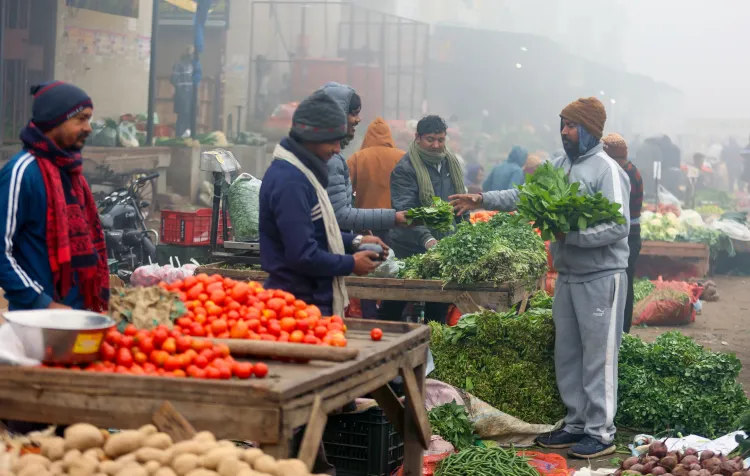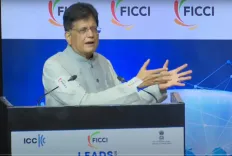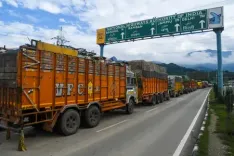PMKSY Cold Chain Initiative Reduces Waste in Veggies, Dairy, and Fisheries

Synopsis
Key Takeaways
- Substantial decrease in wastage in key sectors.
- PMKSY aims to enhance food processing infrastructure.
- Supports farmers by improving earnings and employment.
- AIF Scheme aids in developing community farming assets.
- Steel silos construction is modernizing storage solutions.
New Delhi, Feb 10 (NationPress) The Integrated Cold Chain and Value Addition Infrastructure Scheme initiated by the Ministry of Food Processing Industries has led to a substantial decrease in wastage within the vegetables, dairy, and fisheries sectors, alongside benefits in additional sectors, as highlighted by a NABARD study.
The Ministry of Food Processing Industries (MoFPI) has been rolling out the Pradhan Mantri Kisan SAMPADA Yojana (PMKSY) since 2016-17, focusing on establishing post-harvest infrastructure and processing facilities to enhance the comprehensive growth of the food processing industry, particularly by decreasing post-harvest losses, as reported in the Rajya Sabha by Minister of State, Ravneet Singh.
The PMKSY component schemes offer credit-linked financial assistance (capital subsidy) in the form of grants-in-aid to entrepreneurs for creating food processing and preservation infrastructure, which includes cold storages and refrigerated transport to help mitigate post-harvest losses.
Envisioned as an all-encompassing initiative, PMKSY aims to develop modern infrastructure with efficient supply chain management that runs from the farm gate to retail outlets.
This initiative seeks not only to significantly boost the food processing sector's growth across the nation but also to enhance the capabilities of food processing units, thereby ensuring better returns for farmers and generating employment opportunities, particularly in rural regions. This will reduce wastage of agricultural products, elevate processing levels, and improve the export potential of processed foods.
In addition to the MoFPI's efforts, the Ministry of Agriculture and Farmers' Welfare launched the Agriculture Infrastructure Fund (AIF) Scheme in July 2020, as part of the Atmanirbhar Bharat package, to enhance post-harvest infrastructure and develop community farming assets. The AIF Scheme promotes the sanctioning of medium to long-term loans by banks and lending institutions for constructing cold storage facilities, warehouses, and processing units, aimed at minimizing crop wastage and increasing value addition, according to the minister.
Moreover, the Food Corporation of India is executing a plan to establish steel silos through a public-private partnership (PPP) model to upgrade and modernize the nation’s storage facilities. This plan includes constructing silos with a total capacity of 24.25 lakh metric tonnes (LMT) at various locations across the country. Currently, silos with a capacity of 17.75 LMT have been completed, while the remaining 6.5 LMT are at various development stages.
Additionally, silos with a capacity of 5.5 LMT at seven sites were constructed and utilized between 2007 and 2009 under a circuit-based model. Further, under phase I of the hub and spoke model, silos with a capacity of 10.125 LMT at 14 locations on FCI-owned land have been awarded, and 24.75 LMT at 66 locations on private land have been awarded and are in the developmental phase, the minister added.









